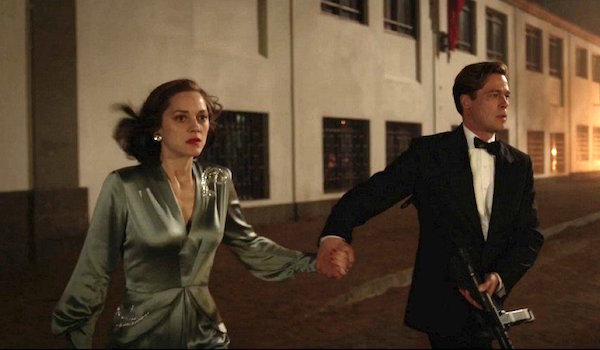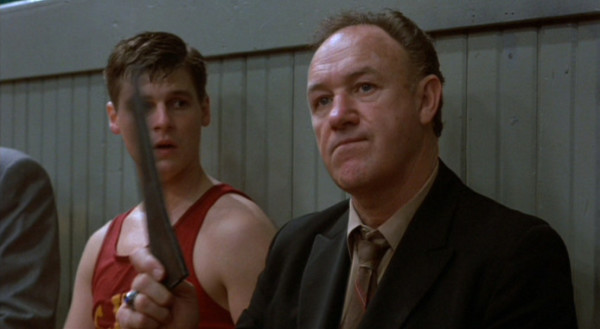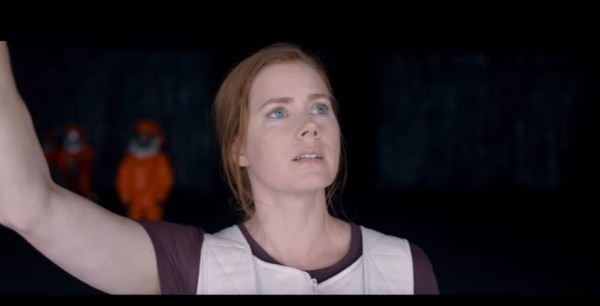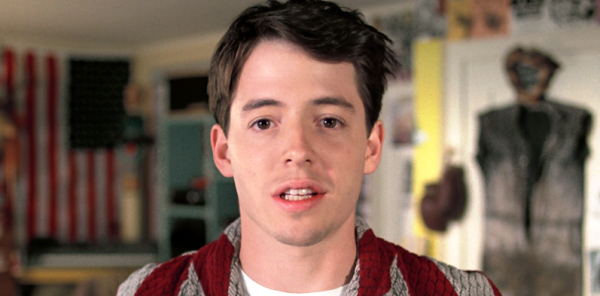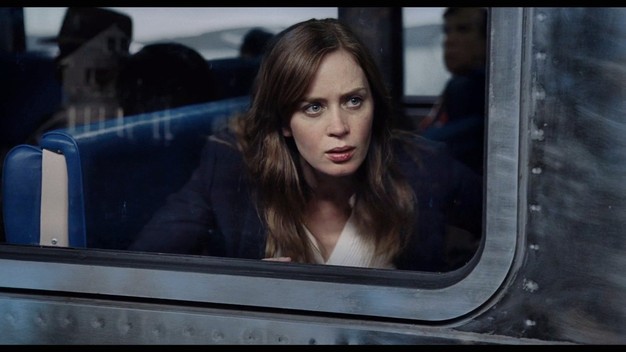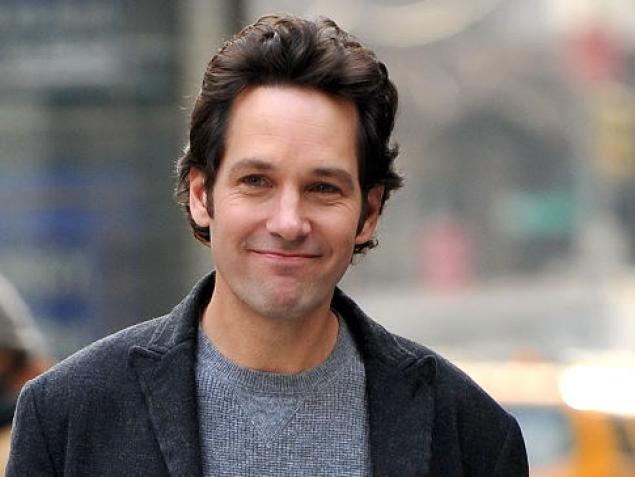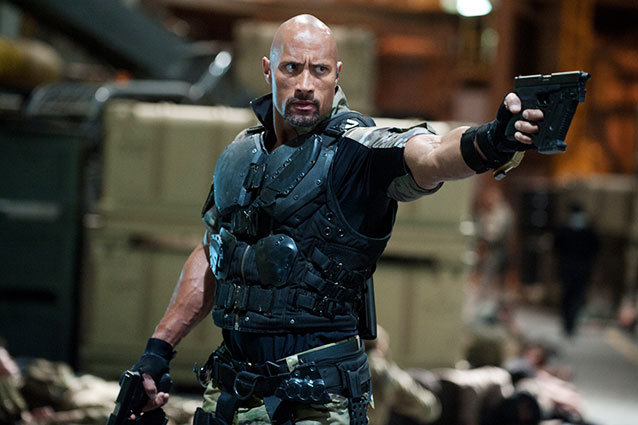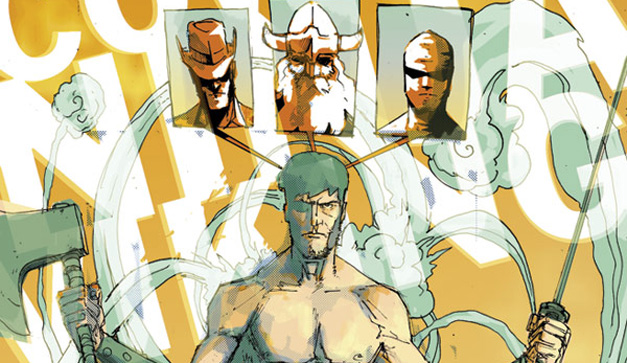Search Results for: James bond
Michael Jackson once sang, “I’m looking at the man in the mirror. I’m asking him to change his ways.”
I don’t know if mega-star screenwriter Steven Knight (Allied) is a Michael Jackson fan or not, but I was reading an interview he did at Slash-Film the other day, and one of the questions asked of Knight was one that has pockmarked the screenwriting community for centuries. It’s the closest thing we have to a trigger question. Our equivalent of a political nut walking into a room and saying, “I can’t wait for Trump to build that wall.”
“SHOULD YOU FOLLOW THE RULES?”
Early in the interview Knight says that he avoids following screenwriting rules, specifically the one that states a character has to CHANGE over the course of a movie. When then asked which rules he isn’t fond of, Knight doubled-down on character change…
I mean, the arc thing is interesting. It’s good sometimes to have a character that starts as one thing and ends as another, but James Bond, Hercules, these are pretty enduring stories. [Laughs] Like a Greek myth. In a Greek myth, you can have the characters and objects, and it just goes through these events in the same as a computer game now.
I’ve always found this discussion fascinating because I believe it’s essential that a character change over the course of a movie. In fact, I’d argue that 99% of main characters in films do change, and that if your character doesn’t change in some way, we’ll feel let down, even leave disliking that character.
The only time a character doesn’t change and it still works is when that character dies because of their inability to change. I just watched Hell or High Water, and in that movie, the trouble-making brother lived a selfish sinful life. He never changed his ways (spoiler) and he ended up dying because of it. We also saw this with Robert DeNiro’s character in Heat.
Here’s where everyone gets tripped up though. They think that “change” has to happen along the traditional lines of assigning your character a flaw, and then having that character overcome that flaw by the end of the movie.
I agree that, when done well, this is the most effective way for change to work. When a selfish character (Trainwreck) learns to become selfless, we feel warm inside. When a stubborn character (Hoosiers) learns to listen to others, we feel tender inside.
However, the more scripts I read, the more I realize this type of change doesn’t happen often. And a look into history tells us why. The time when this advice became popularized was in the 80s and 90s, a period when comedies, rom-coms, and less serious fare dominated. In those movies, the “flaw-change” worked perfectly. The films (along with animated and sports movies), were already skirting reality, so the fact that this unrealistic 180 degree character turnaround occurs at the end of the movie didn’t faze anyone. They bought into it wholeheartedly.
But when you watch a movie like Drive or Bourne or Mad Max or Arrival – you don’t see traditional flaws explored. And because you don’t, you don’t see that arc Knight is referring to.
BUT…
Those characters still change. And the reason screenwriters miss it is because they’re looking specifically for the flaw-change. But alas, my screenwriting snickerdoodles, there are OTHER WAYS TO CHANGE A CHARACTER.
Two big ones, in fact:
LEARNING
and
OVERCOMING
Learning is just like it sounds. The character doesn’t have to become a different person by the end of the movie, which is where rule-defamers get their panties in a bunch. But they do need to learn something. I consider this a “mini-change,” and while not as earth-shattering as a core change, it still leaves the audience feeling good, since the character has evolved.
One of my favorite movies of all time is Ferris Bueller’s Day Off, a film used by flaw-change naysayers as proof that your main character doesn’t have to change over the course of the film. Ferris Bueller has no flaw, they say. And therefore he doesn’t fix his flaw by the end of the movie.
But let’s look at that analysis more closely. Is Ferris Bueller the same person at the end of that film as he was at the beginning? I’d say no way. Ferris has LEARNED two valuable lessons – the value of friendship (with Cameron) and the value of family (with his sister). If Ferris hadn’t changed, he’d still be joking around when Cameron has a breakdown destroying his father’s car. If Ferris hadn’t changed, he wouldn’t have connected with his troublemaker sister, who saves his ass at the end of the day.
The operative word here is that Ferris has LEARNED something. And if you’re not going to add a full-scale flaw-change, this is a nice secondary option. Make sure your character has learned something by the end of the day. It doesn’t have to be big. But it should make us feel that, going forward, the character is better equipped for life.
Next we have “OVERCOMING,” and overcoming comes in two flavors:
LOSS
ADDICTION
Movies that tackle these subject matters tend to be more serious. As a result, the gimmicky “overcoming a flaw” stuff doesn’t work as well (it can work, but it takes more skill to do so). The good news is, this is a fairly easy “change” to pull off. Since the problem is built right into the character, all you have to do is have the character overcome that problem and they have “changed.”
Arrival is an example of “overcoming loss.” Amy Adams’s character, Louise, has lost her child. Her entire life is defined by this loss. By the end of the movie, she’s able to find peace with the loss and move on. Louise is in a better place at the end of the movie than she was at the beginning (note: I know it’s more complicated than that because of the time stuff – but I don’t want to get into spoilers here).
I want you to think about that for a second because it gets to the heart of why, I believe, Steven Knight is wrong. If Louise is the same bummed out hopeless person in the last frame of the movie as she was at the beginning, would we be satisfied? I’m willing to bet you’d all have the same reaction: “Well what the fuck was the point of that then?” This is why change is important. It makes us feel like the journey we just went on had a point.
For an example of a character overcoming addiction, look no further than The Girl On The Train. That film is about a woman whose drinking is so bad, it’s preventing her from solving a murder. If she doesn’t change her ways (her drinking), she will wallow in this drifting pointless existence til the day she dies. Change is imperative for her to succeed and for us to feel satisfied. And she does just that.
And that’s what I want to get across here. Characters must change over the course of the story. It doesn’t have to be with a flaw. It can be by learning something. Or it can be by overcoming something within. But they can’t be at the exact same point at the end as they were at the beginning, or else what’s the point of making us watch your stupid movie for two hours?
I’m so sure of this, that I pose a challenge to you: Name me any good movie where the main character doesn’t change in the three ways listed above (flaw, learn, overcome) where the character doesn’t then end up dead.
And yes, I know the first film you’ll go to is the James Bond series. I don’t know these films well enough to argue against them. But I have a feeling that, in a lot of Bond films, Bond learns something by the end of the movie. Especially in the Daniel Craig versions, which are more character-driven. But what I’m really curious about is if anyone can give me examples other than Bond. And remember, the films have to actually be good! Meaning, the act of not changing the characters resulted in a strong film.
Go at it!
Genre: Romantic Comedy
Premise: A married man on the verge of a mid-life crisis decides to have an affair which leads him to the age-old question: Is the grass really greener on the other side?
About: This script finished on the low end of the 2014 Black List. Abraham Higginbotham, the writer, is a well-known TV scribe, who’s written for Modern Family, Ugly Betty, and Arrested Development. He received his big break by writing a spec script for Will and Grace.
Writer: Abraham Higginbotham
Details: 123 pages
As I pondered life’s important questions this morning – Will my annual Thanksgiving trip to Portland end in rioting? What is a Supermoon and has Hollywood optioned the rights yet? Why doesn’t In and Out offer a chicken sandwich? And finally, why does “Supermoon and The Chicken Sandwich” sound like a movie that could make 200 million in its sleep? – I remembered that I hadn’t posted a review on the site yet.
So I broke open Everybody Wants Everything, a script that sounded funzilla, and despite its 120+ page run time, finished it quickly. The script met expectations. I liked it. However, one issue kept popping up as I read it: This feels more like a TV show than it does a movie. So I looked up Abraham Higginbotham and, lo and behold, it turns out he’s a well-known TV writer.
What does that mean, exactly? A script that feels more like a TV show than a movie? And how do you, young scribe, avoid making the same mistake? Stick around after the plot breakdown to find out!
40 year-old Theo works at one of those cringe-inducing men’s magazines where he’s starting to doubt every choice in life that has led him here. His love-life, however, is a different story. Theo’s met an amazing girl named Jesse, and the two are going on their first date tonight.
There’s that palpable first-date energy in the air when the two meet, and things seem to be going well until our storyteller (a disembodied narrator) backs up a few days and lets us in on some key info: Both Theo and Jesse are married to other people.
The two are hyper-aware that what they’re doing is wrong. But they’re consumed with the question that everyone in a marriage or relationship asks themselves at some point: Am I with the right person? Could someone outside of my relationship be my true soul mate?
What follows is Theo and Jesse mostly trying to avoid each other. But the more their partners’ faults shine through (Theo’s wife is a workaholic and Jesse’s husband refuses to get a job), the more they think about each other. And it wouldn’t be a movie if they didn’t give it a go. So go they do. To, um, uncertain consequences.
Like I said, I enjoyed Everybody Wants Everything. The dialogue is funny and a lot of the situations are funny (my personal favorite is Jesse’s harmless therapist who’s secretly in love with her always wanting to talk about her sex life) and, overall, it leaves you with that nice warm feeling you want to have when finishing a romantic comedy.
But while reading, it became clear to me why we don’t see these movies in the theater anymore.
The rule with feature writing has always been that you have to give the audience something they can’t get with television. Television is free. So if, like television, all you’re offering is a bunch of talking heads, you’re saying, “Come pay for something you can get for free!” People don’t sign up for that.
Especially since there’s 400 freaking television shows now. I can see everything I saw here by watching four episodes of “Casual” on Hulu. And the production value of television has only gotten better. Westworld looks like a movie. So does Walking Dead. So now, not even mid-range productions look like something you can only get in the theater.
This is why comic book movies have become so popular. You cannot get The Avengers on your television. The actors are too big. The effects are too big. The production value is too big.
Why do you think they send James Bond to 70 different countries nowadays? Because with shows like Alias and The Americans, not even a basic spy film is enough anymore. You have to show us something we can’t get anywhere else. So the Bond production pays to take you to the most exotic locations in the world.
So the answer to the question I posed earlier is: If all you’re giving us is talking heads, that’s not big enough for a movie theater anymore. A unique concept (Me Before You) will help. But it’s still a long shot (remember, Me Before You only got made because it was a best-selling novel). If talking heads is your game, I recommend you try and direct the movie yourself. That’s the one advantage of talking heads. They’re cheap to shoot. But to throw that script in Hollywood’s shark infested spec waters? Good luck.
With that said, I liked how Everybody Wants Everything played around with formula. We have a disembodied narrator casually commenting on the events of our two protagonists.
Oh, and the script is a good example of the power of withholding information. Remember that there’s no rule you have to tell your story in order. I liked how Higginbotham introduced us to these characters, put them on the date, then right in the middle of the date, backed up to tell us they were married to other people.
I realized that had I already known they were married, the story would’ve felt bland and predictable. Establishing that these were good kind people, and then, BAM, we find out they’re doing a bad thing. That was a powerful use of withholding information.
Everybody Wants Everything is also a good example of FRAMING a story. “Framing” is when you don’t have a traditional story engine with a goal (Find the Ark, Get off Mars, Kill the Terrorist) but instead, the story is more about the characters – in this case: will they end up together or not?
When you have this setup, you can risk it and hope that the audience only cares about that. But I’ve found that audiences like to know when things are going to end. They need something to FRAME the story for them. Or else they feel like they’re on a road trip with no destination.
So Higginbotham uses Theo’s brother’s wedding to FRAME the story. It’s a background storyline. It’s not important in the grand scheme of things. But it gives us a destination. We know we’re going to end up at that wedding in the final act, so we can relax and enjoy the characters in the meantime.
So, yeah. This script was fun and it does some interesting things. But it’s a hard sell to get into production unless they luck out and get a few huge name actors. We’ll see!
[ ] What the hell did I just read?
[ ] wasn’t for me
[x] worth the read
[ ] impressive
[ ] genius
What I learned: Everything we’ve talked about in this review is why finding a high concept is so important. It’s not just that you have to stand out in this business. You’re trying to convince producers that your idea is something that the average consumer doesn’t get by staying at home and watching television. A unique concept does that. Ultimately, you’re writing a movie that you’re trying to convince someone to block out 3-4 hours of their valuable time for to pay to see. Really think about that. There are hundreds of thousands of hours of free content online right now that you won’t even bother with. AND IT’S FREE AND DOESN’T REQUIRE YOU TO MOVE AN INCH! What is it about your idea that makes it “leave the house and pay for it worthy?”
Genre: Supernatural/Adventure
Premise: Mythical creatures and monsters have always lived here on earth with us, hiding in the shadows. Guess what. They’re tired of hiding in the shadows.
About: Here’s the thing I don’t understand. Hollywood is so obsessed with IP that they’ll prioritize a comic book turned script that nobody’s ever heard of over writing it on spec to begin with. It’s not even about getting something that’s done well anymore. It just needs to have been published in another medium. Anyway, Lore sold a few years ago for seven figures in a huge bidding war. The Rock was attached.
Writers: Jeremy Lott & Cory Goodman (story by Cory Goodman) – Based on the graphic novel by Ashley Wood & T.P. Louise
Details: 106 pages – 3/20/12 draft
I remember that this was a HUGE sale. And with The Rock starring, it seemed like one of those rare projects that was going to go from purchase to production in under a year. But how many times have purchase-to-production projects been destroyed by the Gods of Hollywood? What’s the old saying? We make plans and God laughs? Yeah, well, Hollywood laughs harder.
What I think is going on here is that Legendary, who spearheaded the project, moved from Warner Brothers to Universal and whenever that shit happens, everything gets fucked up. Then after this sold, the similar-feeling R.I.P.D. came out and did badly, scaring everyone to death. And now WB’s got this Fantastic Beasts movie that seems like a period-piece version of the exact same concept.
It just goes to show why it’s so hard to make movies in this town. The smallest thing can derail your project at any moment. Maybe if the script’s good enough, though, Lore can make a comeback. Let’s find out!
Calliope Saunders saw something amazing when she was 12. A man fighting a dragon-woman. Granted, you can see that kind of thing on Hollywood Boulevard three times a week. But she’s pretty sure this was, like, a real dragon.
Cut to Calliope all grown up, and she’s dedicated her life to figuring out where that creature came from. She’s convinced that there are places on the planet where certain electro-magnetic faults cross, and that those crossing-points are doorways to a monster world.
Despite her fellow scientists laughing her out of the room, Calliope learns just how right her hypothesis is when Shepherd guardian Jonathan Bradley comes to her defense just as a fairy attacks her. Calliope gets a crash course in monster history, where Bradley informs her that all sorts of creatures (sasquatches, minotaurs, fairies, vampires, trolls) are real and that sometimes they illegally step into our world, and guys like him have to stop them.
The two find out that Kiyo, that dragon-lady from the opening, has learned where these crossing points are. If she can get to them before Bradley and Calliope do, she can unleash all the nightmare creatures inside of them, and it’ll be bye-bye humans.
I could break this down the way I usually do and point out the pros and cons, but the truth is, this is a solid well-executed traditional screenplay. It doesn’t surprise you. But it moves along quickly and keeps you entertained enough so that you care. No small feat.
What I’d rather talk about today is team-ups. I was just reading a script the other day with a really good premise but it wasn’t working. It didn’t take long to realize that the main problem was the central team-up. It consisted of two women who had zero conflict, zero tension, and who seemed to get along great. Because of this, almost all of their scenes together were boring.
Coming up with the right team-up in a team-up film can be the difference between success and failure. No matter how cool your set-pieces are or how many million dollar effects shots you have, it all comes back to the characters and if the audience wants to follow them.
There are two core team-up options.
1) Buddy Cop Team-Up – This doesn’t mean a team-up that you only use in buddy cop movies. Rather, it refers to a conflict-heavy relationship between two men or two women where the parties are so different that they disagree on almost everything. This results in a lot of conflict and therefore a lot of entertainment. Keep in mind that the buddy cop team-up does not always need to be of the over-the-top variety. Not every movie is Bad Boys 2. You can play a team-up in a much more subtle manner depending on the genre, tone, and concept.
2) Sexual Tension Team-Up – The sexual tension team-up is when you take a man and a woman and you play up the sexual tension between the two. This is one of the most time-tested set-ups in film history and while the initial assumption might be that it’s cliche, it will work if done well. Also, like the Buddy Cop team-up, you will tailor the level of tension to the genre, the tone, and the story. It could be over the top like James Bond or it could be under the surface, like Once.
These are your two staple team-up options. Once you go outside of them, you can still make it work, but it becomes tougher. A third team-up option is friendship, like Eliot and E.T. But since there’s little conflict in a good friendship, you have to bring conflict in from the outside and have forces trying to tear that friendship apart.
Look at The Force Awakens. They went the friendship route with Rey and Finn. Now I ask you: was that a satisfying storyline? I’d say it was okay. But I didn’t leave The Force Awakens going, “Man, Finn and Rey! Wow. I have to get more of those two!” Friendship is tough to do because screenwriting likes extremes. It likes “we hate each other” or “we love each other.” If you’re in the middle, “Oh, we like to hang out on Saturdays when we’re bored,” it’s hard to make that entertaining.
There are other ways to get creative with team-ups. For example, bring someone in from the past! Now you have a different kind of conflict, one that’s built off of unresolved issues from the past, and therefore conflict with more weight. A classic example of this is Indy and Marion from Raiders.
Another way to deal with a conflict-weak team-up is to bring more characters into the group as the story unfolds. Luke and Obi-Wan’s team-up is fine at first. But if that’s all we had the entire movie? We’d get bored, because they liked each other so much. So what did they do? They brought in Han Solo. And all of a sudden there was tension and conflict everywhere.
Lore chose to go the sexual tension route between Calliope and Bradley and did a pretty good job with it. And that leads us to our final lesson. The reason why getting the team-up right is so important, is because that’s what’s going to make or break the movie. Writers erroneously believe it’s the awesome effects or cool set-piece that’s going to make their movie unforgettable. But when people remember their favorite movies, it’s always the characters. So make sure to get that right.
Lore was fun. This is becoming a familiar story set-up that a lot of writers are using though. We’ve got Ghostbusters, M.I.B., R.I.P.D., Fantastic Beasts. I don’t know if this is original enough to stand out anymore. You gotta find another way in. “Bright” is a good example of finding another way into the monster universe. What about you? What fresh new angle are you hiding up your sleeve?
[ ] What the hell did I just read?
[ ] wasn’t for me
[x] worth the read
[ ] impressive
[ ] genius
What I learned: Think long and hard about the central-team up in your script and if it provides enough conflict/tension. If it doesn’t, that could result in a really boring movie, since that relationship will be onscreen far longer than any other aspect of the movie. You’ll definitely want to re-think the team-up in a way where there’s adequate conflict to explore.
Things get insane today. I mean like writers of Deadpool write about ninjas, cowboys, and vikings, with Quentin Tarantino making a cameo insane.
Genre: (cannot be classified)
Premise: A crazy man with three personalities, a cowboy, a ninja, and a viking, must defeat his evil billionaire boss before he destroys the world.
About: Uh, did someone say a Chris Pratt project written by the hottest screenwriting team in the universe? Do Mondays get any better? — Actually, a little more information on this. This is an early draft of the project written by Deadpool super-scribes Reese and Wernick. However, it looks like there have been new scribes hired since this draft to update the project. So take this for what it is – an early draft of a cool project that is trying to get cooler.
Writer: Rhett Reese & Paul Wernick (based on the Image comic book, Cowboy Ninja Viking, by A.J. Lieberman and Riley Rossmo).
Details: 119 pages – December 31st, 2011 draft
I chose today’s script because our big summer choice this weekend was Star Trek 3. Star Trek 3, the most bland sci-fi movie Hollywood could’ve possibly conceived of. And it did okay. But that’s only because “okay” has been redefined after every movie this summer has bombed.
When I saw “Cowboy Ninja Viking” I thought: “FINALLY!” This is the movie we need. Something with some god damned originality, Alice! Audiences are ACHING for a movie like this. It’s primed to be the next Deadpool.
But is it as good as Deadpool?
Hmmmm…. only a Scriptshadow review can answer that.
Duncan Trevello is crazy with a capital “K.” Wherever he goes, for as long as he’s been going, he’s had with him Cowboy, Ninja, and Viking, his alter ego multiple identities, all three of whom, of course, will be played by the same actor who plays Duncan (notable for major screenwriting lesson later on).
Duncan has been holed up in a nuthouse for eight years but escapes when he finds out his nemesis, Ammo, is coming after him. Duncan flees to Vegas where he gets on a black jack winning streak that would make Ben Affleck jealous (by following the crazy advice of his alternate personalties – like hitting on 19).
The pit boss is convinced that Duncan is cheating since no sane person would be making the choices that he’s making, so he pulls him into his office and beats him up. That’s when Duncan unleashes his secret, that he can take on the fighting skills of his three alternate personalities. So he beats the living hell out of the pit boss as well as a half dozen casino guards, and starts spending his money like mad all over town.
But Ammo finally catches up to him and takes him back to their master, billionaire Richard Blaq. We learn that Blaq plucked Duncan, as well as every multiple-personality orphan he could find, from his orphanage, and used his split personalities to create the ultimate fighting machine.
Duncan is able to escape once more, but when he learns that Blaq has created the most powerful computer chip in the world, he knows he must stop him. Because if Blaq has created something that powerful, he knows that he plans to use it for something awful.
Let’s get down to business, scribes. Why didn’t you think of this idea!!!??? This is the ultimate spec script idea. It gives a major actor FOUR DIFFERENT UNIQUE FUN ROLES TO PLAY. We talk about this all the time. Create multiple roles for a single actor to play and it’s fucking acting catnip! This was GUARANTEED to nab one of the biggest actors in the world. Not to mention PDA. Write a script that will either draw a producer, director, or major actor. This gets you your actor.
Better than that, it’s a best of both worlds project. Not only will this make money, but it gets you STREET CRED since it’s so weird. It’s the exact same thing that made Deadpool the envy of every studio in town. You get the money, the critics, the audience, and the opposite looks on Rodeo Drive than you get when you’re the producer of Teenage Mutant Ninja Turtles.
Unfortunately, once you start comparing Cowboy Ninja Viking to Deadpool, the katana starts cracking at the seams.
Maybe Wernick and Reese fixed these problems in later drafts, but in this one, they’re pretty glaring. See, here’s the thing with this script and with these nutball hero scripts in general. You have two options. You can have the story mirror the main character and just be balls-to-the-wall crazy. Or you can keep the story clear and concise, which allows your main character to be the lone balls-to-the-wall element in the movie.
I prefer option 2. If everything is unhinged, there’s nothing to ground the story, and we’re never going to know where we stand. That’s exactly what happened here. A clear plot didn’t emerge until super late and up until that point, I had little idea where we were or why.
That’s a big question writers need to be constantly asking themselves:
WHERE ARE WE AND WHY?
If you don’t know where your character is in the story and why, chances are the reader doesn’t either.
At one point, Duncan’s back with Blaq and the two are just sort of hanging out, not really happy with one another but not really upset either. And I’m thinking, “Wait, why is Duncan just hanging out? What’s he doing? Why isn’t he attacking this man that he hates?” It was like the story stopped functioning for awhile.
Another issue I had here was how much of the story was driven by Blaq. Black was the one making everything happen. He was trying to capture Duncan. He was trying to put together this army of people with multiple personalties (but why???). He was making some super computer chip that was more powerful than anything.
Everything was so centered on Blaq, no time was left over for Duncan!!! And he’s our hero! And he’s probably one of the most interesting characters ever created for a big film. And he’s just sitting on the sidelines, watching Blaq do all this bizarre shit.
The best part of this movie is the first act, because that’s the only time that Duncan is active. It’s the only time he’s making his own decisions, driving his own storyline. This is a lesson for everyone. If your script goes on for too long where your hero isn’t driving the story, we’re going to get bored. We didn’t come to see your hero play second fiddle. We want him on first chair.
If I were these guys, I would’ve kept this whole thing in Vegas. It’s the perfect town for a character this weird. And the great thing about this idea is that it doesn’t need a giant plot. We don’t need to be whisked all over the world like in a James Bond film. Your main character is the entertainment. Save a ton of money, improve the chances of this getting made, and just set the whole shebang in Vegas and shoot if for 40 million. Everyone will go see this. It’s the movie that Hollywood needs right now.
A mess of a plot that needs fixing but this character is so fun, I say this is worth reading.
[ ] What the hell did I just read?
[ ] wasn’t for me
[x] worth the read
[ ] impressive
[ ] genius
What I learned: The messier your main character, the cleaner the plot needs to be. If we’re trying to wrangle in fifteen layers of hero, we can’t be confused about what the hell is going on. Make it simple! This is actually what the original Deadpool did. Sure, it jumped around in time. But it was a crystal clear revenge film. We always knew what Deadpool was after.
Wow, all these people came out of the woodwork to submit for Pilot Week. It’s as if there’s this whole sub-section of secret Scriptshadow readers who were waiting for this moment. I might have to do a second week of this since there were so many submissions and I couldn’t get all the good ones in today. But first we’ll have to see how this week goes. For those who don’t know the rules, download and read the pilots and vote on your favorite in the comment section. Winners gets a review next week. Also, if you have time, give feedback to the writers, letting them know where you had problems (or on what page you stopped reading their script) and how they can improve. Good luck to all!
Title: Unraveled
Genre: Viewer-Interactive Mystery
Logline: Tasked with finding a wealthy family’s newlywed daughter, we quickly realize we’re not working a straightforward case.
Why You Should Read: Greetings from the future! 2020 to be exact. In the back of my driver-less car I just finished binge-watching Netflix’s first foray into “viewer-interactive/virtual reality” content. Frankly, it wasn’t very good. We storytellers at Scriptshadow can do better. So I jumped in my family’s time traveling Honda Odyssey(new feature for 2018) and jetted back to 2016 to ask, humbly, for your feedback. “Unraveled” bridges the gap between serial format TV and gaming, on the forefront of Virtual Reality storytelling. As the viewer adopts the protagonists role, he/she can(and should) choose the order in which they watch episodes as they try to solve the mystery. As a result, not only do the characters have GSU, but the viewer as well. Is this ambitious? Yes. Is it impossible? You’ll have to open the script to find out.
Title: Bananas & Cocaine
Genre: TV Pilot – Drama
Premise: What if Miss Chiquita walter-whited her way to the top of a Colombian cartel?
Why You Should Read: I think I subconsciously came up with the concept for this pilot while shopping at Ralph’s back in the day. You see, there happened to be a grocery list left inside the shopping basket I snagged on my way into the store. (Which is way better than the usual red onion skin remnants and/or unidentifiable sticky liquid by the way.) As I took a gander at this list, I noticed that the only two items not crossed off were “Bananas” and “Coke.” Voila!
Title: Infamous
Genre: 1hr Dramedy
Logline: A struggling author goes undercover at an infamous gossip magazine to write a tell-all book and discovers that her morals aren’t the only thing threatened in the bizarre world of celebrity news.
Why You Should Read: Well, most people know me as a dedicated Writer/Producer/Director, but only a few know my dirty little secret: I used to be a gossip reporter for a top gossip magazine, and Infamous gives you an inside look at the absurdity of it all.
As a gossip reporter, my life was part Carrie Bradshaw, part James Bond and completely over the top. If I wasn’t dining by candlelight with Angelina’s bodyguard, I was undercover in Belize tracking Tom Cruise, or trying to find out if Britney Spears ate bacon for breakfast. I have so many stories to tell, and this pilot is just the beginning.
Title: The Remains
Genre: Thriller/Athology (aimed at Netflix/Amazon/HBO, etc)
Logline: When the main suspect commits suicide on the twentieth anniversary of her mother’s disappearance, a woman soon finds out that everything she held true about what happened all those years ago is shattered and she must partner with an unstable Texas Ranger to save her own life and uncover the truth.
Why You Should Read: I grew up in a small Texas town (pop. 2000). After a local woman simply vanished in the ’90’s, I would listen to my dad come in late at night and tell my mother about the case, which he was investigating. The stories were replete with local scoundrels, psychics, and drugs.
Even as I entered adulthood and went on in the world, the case never left my psyche. It’s exacerbated each time I see her daughter, who was a few years younger than me, posting on Facebook each year on the anniversary.
Although the real-life story and my version are vastly different, I still owe the seed being planted, so many years ago, to those late night stories about the case. A case that I feel is hard for me to let go of emotionally, although I have no deep personal connection to any of the parties that were involved.
Title: Calling All Destroyers
Genre: TV Pilot – Adventure
Logline: A wide-eyed teenager follows in the footsteps of his heroic older brother and enlists in The Monster Defense Force, an organization responsible for protecting what’s left of America from attacks by giant monsters.
Why You Should Read: There were a million reasons not to write this.
It’s insanely expensive. It doesn’t check any of the traditional boxes an hourlong pilot should. There isn’t an obvious structure or episode guideline to follow (it’s more of a weird hybrid mini-series than anything). It feels more like a movie than TV. The narrative is heavily influenced by books as opposed to any of the visual material that shares the same subject matter. It’s a waste of time because no one will ever make it. So no one will ever buy it. Which means no one in the industry wants to read it. Etc. Etc. Etc into infinity.
But here’s the thing people forget about writing, sometimes the story picks you. And it chases you everywhere you go until it finally catches you and invades your brain.
So while there definitely was a million boring and responsible reasons not to write this, it just wouldn’t leave me alone. So I HAD to do it anyway.
Calling All Destroyers is an adventure story about a group of underdogs figuring out who they really are in the midst of fighting giant monsters. It’s the best thing I’ve ever written. And I’m incredibly proud of it.

